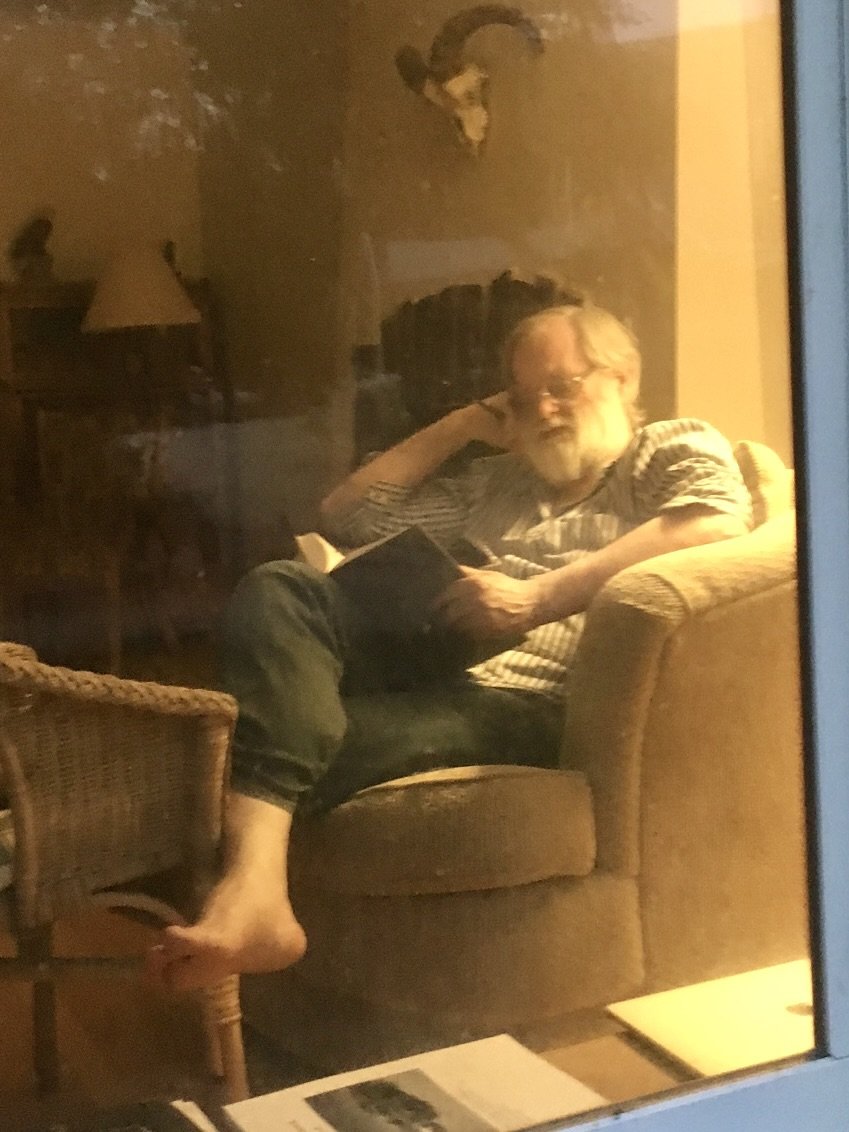WESTERN WHERE, poetry by Tim Hunt
Publication Date: March 15, 2024
Paperback, 88 pages
ISBN: 978-1-956782-64-6
$22.50 retail, $16.50 from publisher
The “West” at the heart of Tim Hunt’s new poetry collection is of course a real place in terms of its geography and history, but more importantly it occupies a central space in the psychology and mythology of American identity, and the “Where” of his title situates us at the nexus of all of these dimensions. It is also a deeply personal account as Hunt writes from the perspective of a working class childhood in the hill country of northern California, and his family lore (and fiddle) appear along with places now vanishing into, and out of, memory. But the mythologized West also plays a problematic role in our national politics, and in part Hunt has undertaken this project in response and rejoinder to that usage, particularly in the multi-part poem “In This America” that concludes the collection, a place where “God / turns our Fear into Hate / and we shall call it Love / and Righteousness / unto The End of Time” and “nuthin’ says / Don’t Tread on Me // like K-Mart Camo, some chaw, // and that nice T-Bone / on the propane grill.” Read this book to find out who we are, how we got that way, and just perhaps where we might be going.
Praise for Tim Hunt & Western Where
Reading the stark, moody poems of Tim Hunt’s latest collection put me in mind of a Paul Simon lyric, “Counting the cars on the New Jersey Turnpike / They’ve all come to look for America.” Though in Hunt’s version the highways are out west; the mood prevails, only the scenery changes. By the time we get to the exquisite third section, after a brief detour into Bluegrass land, I felt as if I was in a Cormac McCarthy novel: vast wide-open, sun-bleached plains, arid deserts, desolate, and unforgiving. Beneath every ghost haunted surface lies a threat of violence. The journey is all about searching for what we have already found within ourselves. Choose your own highway and travel if you dare.
—Alan Catlin, author of How Will the Heart Survive? & editor, Misfit Magazine
Tim Hunt’s elegy for a vanished America, Western Where, takes us on an evocative road trip where we discover the last picture show, a played-out silver mine, a hand-me-down fiddle, silver-screen cowboys, and more. His wistful word paintings leave us yearning.
—Holly George-Warren, author of Janis: Her Life and Music & Public Cowboy #1: The Life and Times of Gene Autry
I live in San Francisco, in a bubble. A few miles east, a tunnel leads traffic out to the suburbs, and then the farms of the San Joaquin, the Sierra Nevada and Nevada and so forth—America, in other words. Tim Hunt’s Western Where reminded me deeply of how very different America is from where I live. His discerning poet’s eye contrasts the two cultures that can be traced from Kris Kristofferson’s “Me and Bobby McGee,” from “nothing left to lose” in his country version, which is about endless loss—and the liberation and culture change signified by Janis Joplin’s version. It’s a profound visit to America, 2023.
—Dennis McNally , author of On Highway 61: Music, Race and the Evolution of Cultural Freedom
Tim Hunt’s new collection reminds us that, “It isn’t that you understand this world. / You are this world.” The book, in three parts – “Here and There,” “Lost and Found,” & “In This America” – is filled with vivid imagery of the California desert high country. Hunt weaves history with desire and lore, the “mismatched details / And stories that might be imagined— / Some of them maybe even true.” “Lost and Found” explores the poet’s sense of displacement: “In this world, the opposite of lost is belong”, but then “in the world lost is here, / even though here / is where you are from,” The 21-part poem in the final section is Hunt’s hard look at the here and there, the lost and found of America of today. Western Where is a finely crafted, lyrical book that transcends The West, and speaks to the separations and displacements many of us feel. Time has moved on, and we are “tumbleweeds snagged in a fence/rocking in the wind.”
—Gerald Wagoner, author of When Nothing Wild Remains
About the Author
Tim Hunt was born in Calistoga and raised primarily in Sebastopol, two small towns north of San Francisco that were, in the 1950s and 1960s, still agricultural, working-class communities. As a boy, he identified strongly with the Lake County region of his father's family, an area of the Sierra Nevada foothills where quicksilver mining had once been profitable. Here one of his aunts taught him “I Can Tell You Are a Logger ’Cause You Stir Your Coffee with Your Thumb,” while a rockabilly cousin offered “Be-Bop-a-Lula.” Educated at Cornell University, he taught American literature at several schools, including Washington State University and Deep Springs College, before concluding his career at Illinois State University, where he was University Professor of English. He and his wife Susan, a retired respiratory therapist, have two children: John, a visual artist, and Jessica, a composer.


